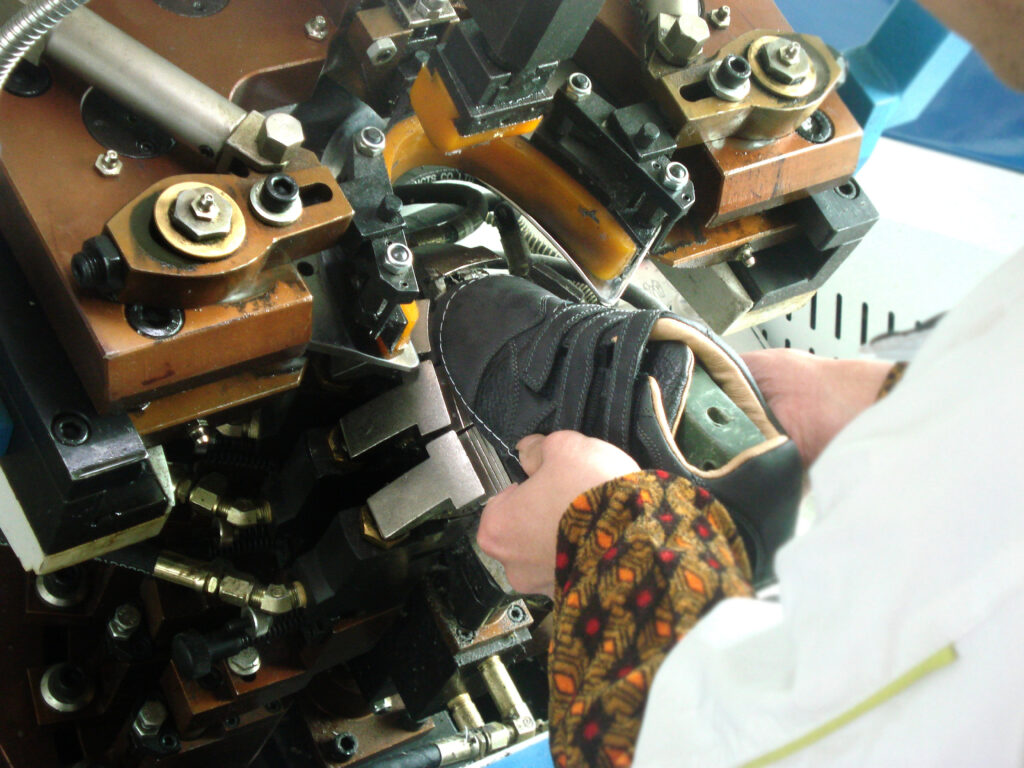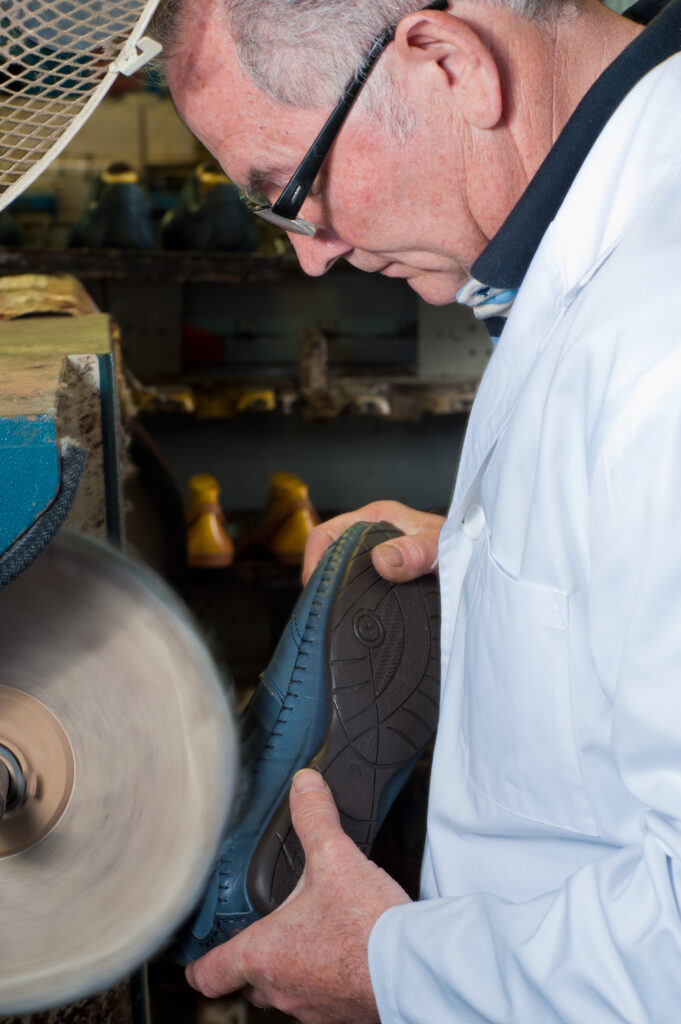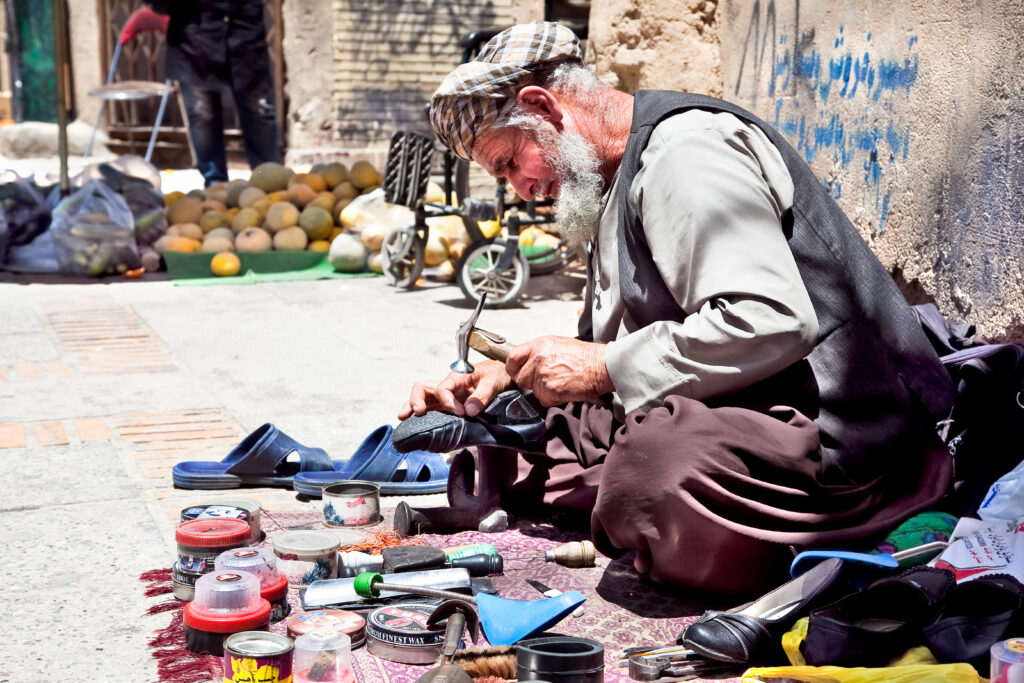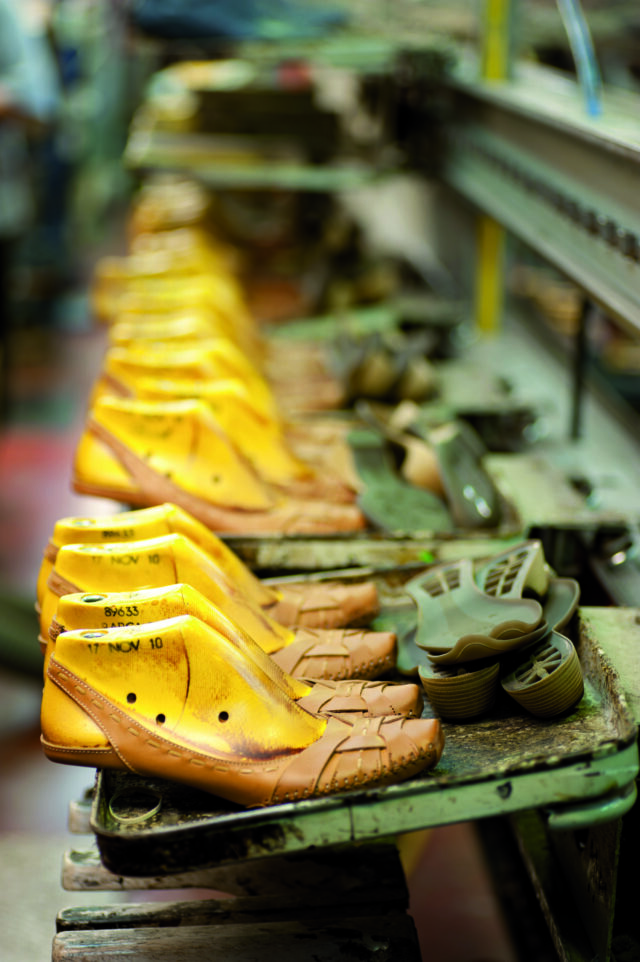BIS CERTIFICATION FOR FOOTWEAR
Concerned about the proposed BIS standards, various footwear industry associations are congregating in Agra at 11am on 1st April,23 at Agra Trade Centre to discuss the potential impact of the standards. Industry insiders are worried that the mandatory nature of the standards could adversely affect their creativity and ability to predict designs and dimensions, particularly for fashion footwear. The meeting is expected to bring together key stakeholders in the industry to exchange views and suggest improvements to the standards. The industry is keen to work with the BIS to find a solution that balances the need for quality and consumer safety while also allowing for creative freedom and innovation. CIFI has organized a meeting with the Agra Footwear Manufacturers & Exporters Chamber (AFMEC), to help industry understand and enable them to prepare. Members of IFCOMA, AFMEC, CIFI, CLE, ASMA and FAFM would be present in the Interactive Session as the BIS Standards which are being introduced affects all the stakeholders.


The industry is expressing worries over the proposed BIS standards becoming mandatory for all types of footwear except for handmade ones and those made by units with less than a certain turnover. These quality control norms for leather shoes and other compound footwear are going to be implemented to contain imports and the production of sub-standard products in India. This notice covers different leather footwear, counting anti-riot shoes and safety boots too.
“The proposed BIS standards are causing concern within the industry as they are set to become mandatory for all types of footwear. Industry insiders are worried that it may be challenging to predict designs and dimensions, particularly for fashion footwear. They have expressed the need for the standards not to hinder the industry’s creativity. Additionally, the industry is engaging with the BIS to provide its feedback on the standards.” Amit Chopra, MD Shoes & Accessories.
“As per the last notification from the Department for Promotion of Industry and Internal Trade (DPIIT), its mandatory that all footwear manufacturers obtain a BIS certificate, and ensure their products comply with the relevant Indian Standard and bear the Standard Mark (ISI Mark) under a license from the Bureau. The sale of leather or other materials footwear without the ISI Mark will be considered illegal under this order. The mandate requires that all manufacturers obtain BIS certification, without which they will not be legally permitted to produce footwear. Non-compliance may result in significant fines. Furthermore, foreign manufacturers must obtain a BIS certificate for import in India through an Authorized Indian Representative appointment if they wish to sell shoes in India. Distributors and sellers are advised to import or sell only ISI mark footwear to ensure consumer safety and trust.” As per (Quality Control) Order, of DPIIT, Ministry of Commerce and Industry, BIS certification is mandatory for Footwear made from Leather and other materials.
It is mandatory for footwear manufacturers and importers to obtain a BIS certificate/license of footwear to use the standard ISI mark on footwear. Footwear without the ISI mark is not permitted to be sold in the country.

The department has issued three quality control orders which are going to cover and lie footwear made from rubber/polymeric material, leather and other materials and PPE footwear in the mandatory certification of BIS.
The following three QCOs are:
- Footwear made from Leather and other materials (Quality Control) Order, 2020
- Footwear made from all-Rubber and all Polymeric material and its components (Quality Control) Order, 2020
- Personal Protective Equipment – Footwear (Quality Control) Order, 2020
BIS Certification for Leather Footwear and Footwear Compound:
The products embedded in the QCO “Footwear made from leather and other materials (Quality control) order, 2020’ are boots, safety shoes, canvas boots rubber sole, canvas shoes rubber sole, sports footwear, derby shoes, and anti-riot shoes. Table Down Below explains the kind of footwear, their standards, and the title of the standard specified in “Footwear made From Leather and Other Materials (Quality Control) order 2020.
| Sr. No. | Name of Footwear | Indian Standard | Title of Indian Standard |
| 1 | Leather safety boots and shoes | IS 1989 (Part 1): 1986 | Specification for leather safety boots and shoes Part 1 for miners Specification for leather safety boots and shoes Part 2 for heavy metal industries |
| 2 | Canvas Shoes Rubber Sole | IS 3735: 1996 | Canvas Shoes, Rubber Sole- Specification |
| 3 | Canvas Boots Rubber Sole | IS 3736: 1995 | Canvas Boots, Rubber Sole- Specification |
| 4 | Safety Rubber Canvas Boots for Miners | IS 3736: 1995 | Safety Rubber Canvas Boots for Miners- Specification |
| 5 | Leather safety footwear having direct molded rubber sole | IS 11226: 1993 | Leather safety footwear having direct molded rubber sole-Specification |
| 6 | Leather safety footwear with direct molded polyvinyl chloride (PVC) sole | IS 14544: 1998 | Leather safety footwear with direct molded polyvinyl chloride (PVC) sole – Specification |
| 7 | Sports footwear | IS 15844: 2010 | Sports Footwear- Specification |
| 8 | High ankle tactical boots with PU – Rubber sole | IS 17012: 2018 | High ankle tactical boots with PU – Rubber Sole – Specification |
| 9 | Antiriot shoes | IS 17037: 2018 | Antiriot shoes – Specification |
| 10 | Derby shoes | IS 17043: 2018 | Derby shoes – Specification |
BIS Certification for Rubber & Polymeric Material Footwear
The products embedded in the order ‘Footwear made from all-Rubber and all Polymeric material and its components (Quality Control) Order, 2020’ are rubber microcellular sheets, PVC sandal, all rubber gumboots, and ankle boots, industrial and protective rubber knee and ankle boots, rubber slippers, rubber Hawaii chappal, PVC industrial boots, etc. This BIS Certification of footwear order is covering the quality control norms for footwear made from all rubber and polymeric material and its components.
Table Down Below explains kind of footwear, there standards and the title of standard for ‘Footwear made from all-Rubber and all Polymeric material and its components (Quality Control) Order, 2020’.
| Name of Footwear | Indian Standard | Title of Indian Standard |
| Industrial and protective rubber knee and ankle boots | IS 5557: 2004 | Industrial and protective rubber knee and ankle boots – Specification |
| All rubber gum boots and ankle boots | IS 5557 (Part 2): 2018 | All rubber gum boots and ankle boots: Part 2 occupational purposes |
| Molded solid rubber soles and heels | IS 5676: 1995 | Molded solid rubber soles and heels- Specification |
| Rubber microcellular sheets for soles and heels | IS 6664: 1992 | Rubber microcellular sheets for soles and heels- Specification |
| Solid PVC soles and heels | IS 6664: 1992 | Rubber microcellular sheets for soles and heels- Specification |
| Solid PVC soles and heels | IS 6719: 1972 | Specification for solid PVC soles and heels |
| PVC sandal | IS 6721: 1972 | Specification for PVC sandal |
| Rubber HawaiChappal | IS 10702: 1992 | Rubber HawaiChappal- Specification |
| Slipper, rubber | IS 11544: 1986 | Specification for slipper, rubber |
| Polyvinyl chloride (PVC)industrial boots | IS 12254: 1993 | Polyvinyl chloride (PVC)industrial boots – Specification |
| Polyurethane sole, semirigid | IS 13893: 1994 | Polyurethane sole, semirigid- Specification |
| Unlined moulded rubber boots | IS 13995: 1995 | Unlined moulded rubber boots – Specification |
| Moulded plastic, footwear-Lined, Unlined Polyurethane, boots for general industrial use | IS 16645: 2018 | Moulded plastics footwear- Lined or Unlined polyurethane boots for general industrial use- Specification |
| Footwear for men and women for municipal scavenging work | IS 16994: 2018 | Footwear for men and women for municipal scavenging work |
BIS Standards for PPE Footwear
The order ‘Personal Protective Equipment Footwear (Quality Control) Order, 2020’ covers the personal protective equipment-footwear.
| Name of Footwear | Indian Standard | Title of Indian Standard |
| Personal Protective Equipment – Footwear | IS 15298 (Part 2): 2016 IS 15298 (Part 3): 2019 IS 15298 (Part 4) :2017 | Personal protective equipment – Part 2 Safety Footwear Personal protective equipment – Part 3 Protective Footwear Personal protective equipment – Part 4 Occupational Footwear |
It is to be notified that these items cannot be sold, produced, traded, imported, or stocked unless they have a standard mark (ISI mark). These orders of Mandatory BIS Certification for Footwear, which present new quality control norms, will not apply to articles or goods meant for export purposes. All three orders state that the Bureau of Indian Standards (BIS) is the enforcing and certifying authority for the products listed in the order. The shoes manufacturer will have to obtain a Bureau of Indian Standards license from the bureau to use the ISI mark on footwear.

Process of BIS Certification for Footwear
As per DPIIT’s Quality Control Orders on Footwear Products, 27 footwear products have been brought under mandatory BIS certification. First, you must identify the Indian Standard for your product. Read the Indian Standard and ensure that your product meets the requirements specified in the Indian Standard and that your unit has the necessary manufacturing and testing facilities as specified in the Indian Standard. After that, you must create login credentials on BIS Manakonline login portal to apply for BIS Licence for your footwear. There are two modes of application for BIS license: Normal procedure and simplified procedure.
The following are the Normal procedures for getting BIS certification for footwear:
| Step 1 | Documentation before submission of application |
| Step 2 | Submission of application with requisite documents to BIS |
| Step 3 | Scrutiny of application by BIS officials |
| Step 4 | Nomination of auditor for Audit by BIS |
| Step 5 | Audit of manufacturing premises by BIS auditor |
| Step 6 | Sample draw for independent testing |
| Step 7 | Sample testing in BIS approved laboratory |
| Step 8 | Grant of BIS license to footwear manufacturer |
Document Required for BIS Certification for Footwear
The following essential documents are required for BIS Certification for footwear:
- Factory Registration Documents & information
- Identity proof
- Manufacturing process flow chart
- Details of Authorized Signatory and other related documents.
- Adequate testing facilities
- Quality Control Parameters and their records
- Laboratory testing report and other information as per BIS norm
BIS certification for any product is a complex and time-consuming process that begins with product development and validation and continues through the BIS certification process.










